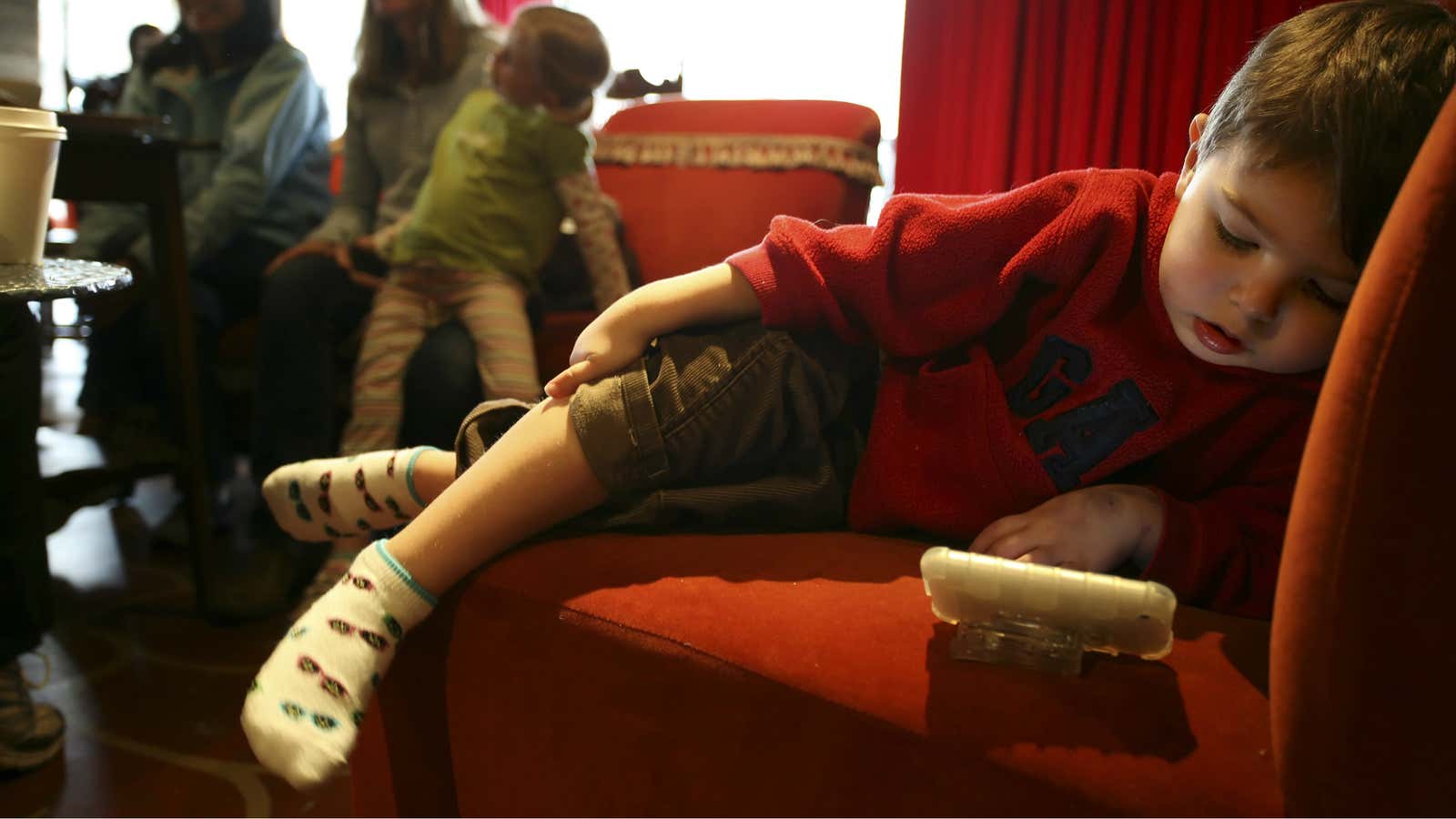The US Congress may not be able to agree on much, but a bipartisan group of senators and representatives have concurred that studying the impact of social media and technology on kids is worth $95 million.
The group today introduced a bill called the Children and Media Research Advancement (CAMRA) Act, which if approved would direct the National Institutes of Health (NIH) to study the effects of technology and media on infants, kids, and teens, including its impact on their cognitive, physical, and socio-emotional development.
“Digital devices are constant companions in this digital age, but we don’t understand the impact on child development, education, or overall well-being,” said Jim Steyer, chief executive officer of the nonprofit Common Sense Media, who advised on the bill. “Without good research, we are performing an unprecedented experiment on our kids.”
There is ample debate about whether our kids are addicted to technology or not. At a recent conference, Robert Lustig, a professor of pediatrics focused on endocrinology at the University of Southern California and author of The Hacking of the American Mind, said “It’s not a drug, but it might as well be. It works the same way … it has the same results.”
Jenny Radesky, a developmental-behavioral pediatrician who wrote the screen time guidelines for the American Academy of Pediatrics, was more nuanced. “From the early childhood perspective, we don’t use the word ‘addiction’ clinically or in research because it is early childhood,” she said. “We use the idea of ‘functional impairment,’ when media use is getting so heavy that the content is influencing a child’s behavior.” On that front, she is concerned.
Jean Twenge, a psychologist, recently wrote a cover story for The Atlantic arguing that the damage that smartphones wreak on young people is quite real: “It’s not an exaggeration to describe iGen as being on the brink of the worst mental-health crisis in decades. Much of this deterioration can be traced to their phones.” Others have challenged her findings.
According to Common Sense’s most recent kids’ media usage survey, overall media consumption is about the same as 2011:
That said, the ways in which kids engage with technology is changing rapidly, according to the Common Sense data. About 42% of kids age eight and under now own their own tablets, compared to less than 1% in 2011. Roughly 10% of kids have a “smart” toy that connects to the internet, and 9% have a voice-activated virtual assistant device available to them in the home, such as an Amazon Echo or Google Home. Daily mobile media usage among kids under eight is nearly 10 times higher than it was in 2011:
The bill, which allocates $15 million for fiscal years 2019-2021, and $25 million for each of fiscal years 2022 and 2023, would fund NIH to research the impact of exposure to and use of media such as mobile devices, computers, social media, applications, websites, television, motion pictures, artificial intelligence, video games, and virtual and augmented reality.
“The media we use and how we use them affect the physical, mental, and social health of us all – and have the strongest and most lasting effects on children, whose brains and bodies are still developing,”said Michael Rich, director of the Center on Media and Child Health at Boston Children’s Hospital, who urged Congress to pass the bill, calling it the “ubiquitous and powerful 21st century public health issue.”
The bill was introduced by Senators Edward J. Markey (D-Mass.), Ben Sasse (R-Neb.), Brian Schatz (D-Hawaii), Roy Blunt (R-Mo.), Michael Bennet (D-Colo.), and Susan Collins (R-Maine), and Representatives John Delaney (MD-06) and Ted Budd (NC-13). Facebook endorsed the bill, along with the American Association of Child and Adolescent Psychiatry, Campaign for a Commercial-Free Childhood, Center for Digital Democracy, Children and Screens: Institute of Digital Media and Child Development, Common Sense Media, Consumers Union, Massachusetts Association for Mental Health, and Family Online Safety Institute.
